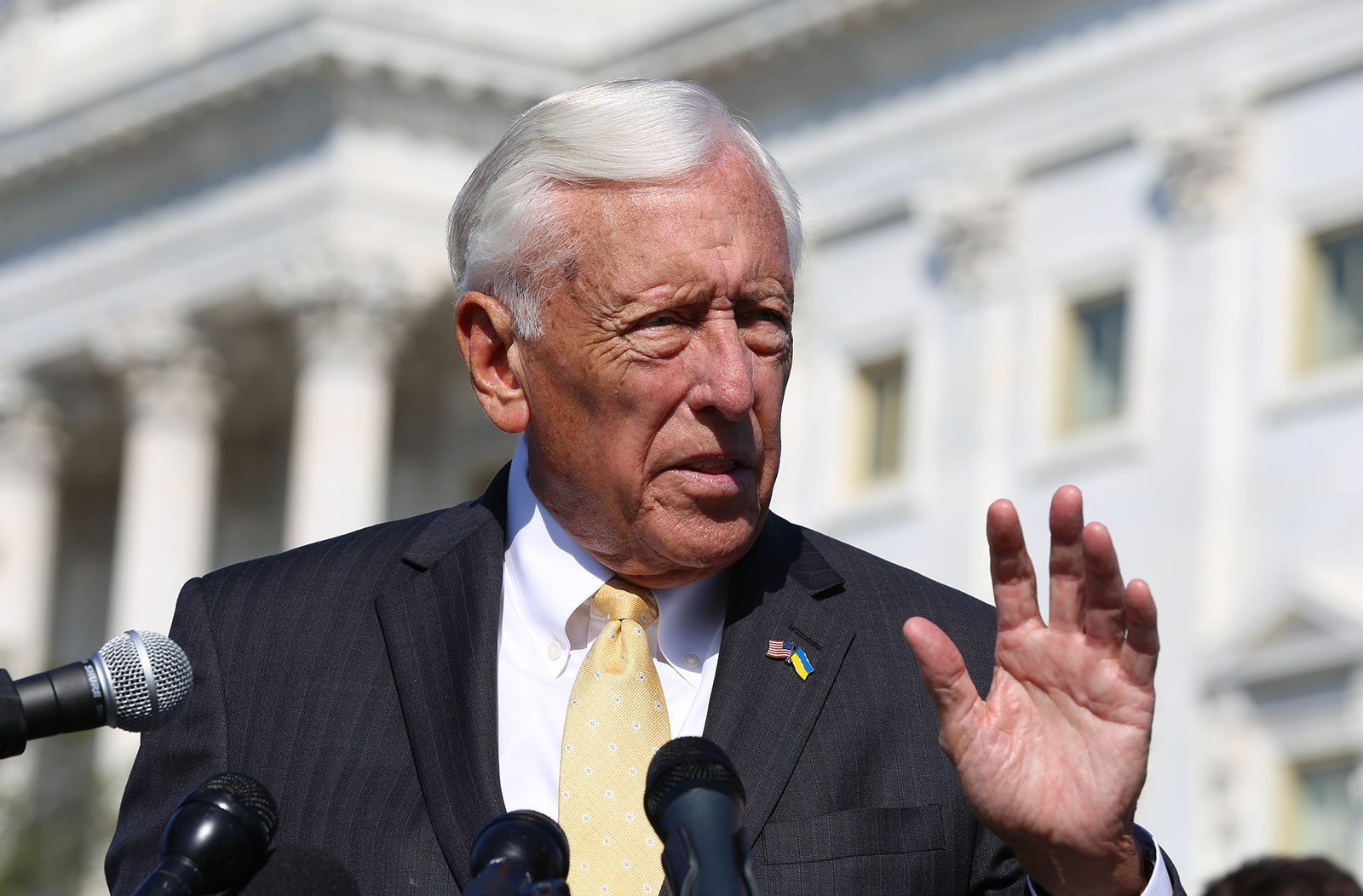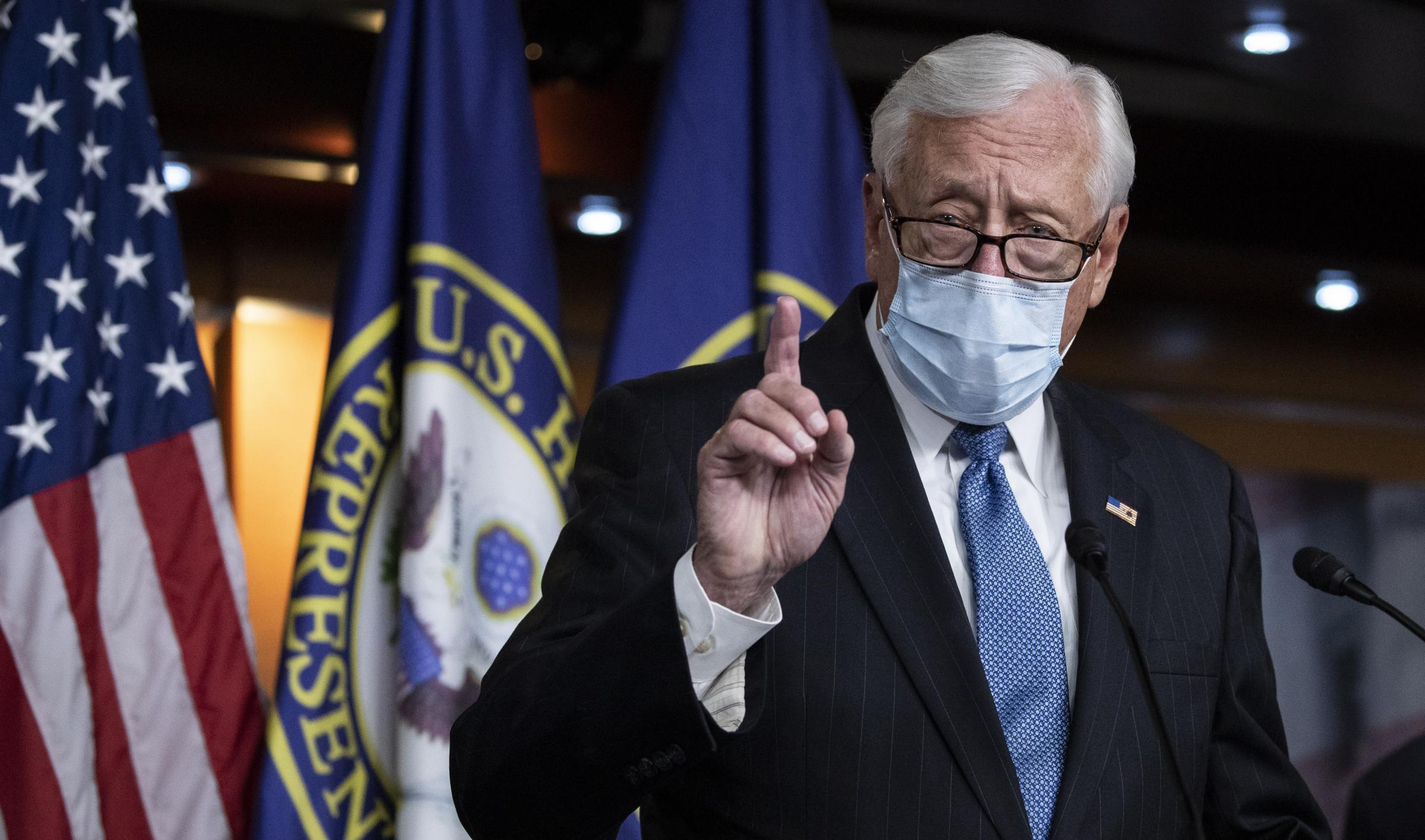Table Of Content

Herzberg said he's excited to start moving Democratic priorities once he's sworn in as a state lawmaker. "The new majority gives room for Democrats to move forward several pieces of legislation regarding labor, healthcare and so much more that [affect] working families," he said in a Facebook post. Democrat Mai Xiong — a current Macomb County commissioner — won the 13th state House District's special election with 65% of the vote against Republican Ronald Singer who secured 34% of the vote to represent part of Detroit and part of Warren, according to unofficial results. Because the local districts tend to lean Democratic or Republican, the results of the primary elections can have a large sway on the race. He is one of a handful of Republican representatives serving in districts that Biden won in 2020. At the state level, Democrats are hoping to hold on to their majority in the state House and take control of the state Senate.
How McConnell and Schumer beat hardline conservatives on Ukraine - POLITICO
How McConnell and Schumer beat hardline conservatives on Ukraine.
Posted: Wed, 24 Apr 2024 09:00:00 GMT [source]
Minority leadership (Democratic)
A seventh delegate, representing the Cherokee Nation, has been formally proposed but has not yet been seated.[30] An eighth delegate, representing the Choctaw Nation is guaranteed by treaty but has not yet been proposed. Additionally, some territories may choose to also elect shadow representatives, though these are not official members of the House and are separate individuals from their official delegates. A special election in 2008 brought Scalise to Washington, where he rose quickly through the Republican ranks. In 2012, he was elected chairman of the influential Republican study group, beating a candidate who had been handpicked by the group’s founders. After that surprise victory, Scalise told reporters on Capitol Hill that his goal was to pull Republican leadership “as far to the right” as possible. Now McCarthy is in the fight of his political life as he again seeks the speakership.

US House of Representatives: who’s who in the new leadership?
Thus, with its potential to frustrate presidential appointments, the Senate is more powerful than the House. The minority party develops alternatives and agendas of its own and attempts to construct winning coalitions on their behalf.
Hoyer Statement on Ukrainian President Zelenskyy's Address to a Joint Meeting of Congress
After a census is taken (in a year ending in 0), the year ending in 2 is the first year in which elections for U.S. House districts are based on that census (with the Congress based on those districts starting its term on the following January 3). As there is no legislation at the federal level mandating one particular system for elections to the House, systems are set at the state level.
Leadership
The organization and character of the House of Representatives have evolved under the influence of political parties, which provide a means of controlling proceedings and mobilizing the necessary majorities. Party leaders, such as the speaker of the House and the majority and minority leaders, play a central role in the operations of the institution. A look at one minority leadership strategy—partisan opposition—may suggest why it might be employed in specific circumstances. The purposes of obstruction are several, such as frustrating the majority party's ability to govern or attracting press and media attention to the alleged ineffectiveness of the majority party.
As a result, the two chambers are considered equal, even though they have different structures and roles. The House of Representatives shares equal responsibility for lawmaking with the U.S. As conceived by the framers of the Constitution, the House was to represent the popular will, and its members were to be directly elected by the people. In contrast, members of the Senate were appointed by the states until the ratification of the Seventeenth Amendment (1913), which mandated the direct election of senators. After winning their elections and weeks of preparation, Members-elect were sworn in as Members of the U.S. House of Representatives after the 117th Congress was gaveled into session at noon on Sunday, January 3, 2021.
After serving as the Democratic whip alongside Speaker Pelosi and the majority leader, Steny Hoyer, Clyburn, 82, decided to remain in leadership even as they stepped aside, though at a lower rank. Elected by acclamation, Clark will become the highest-ranking woman in House Democratic politics. As the party’s top vote-counter, her main task for the next two years will probably be to keep Democrats aligned in opposition to Republican-backed legislation, rather than whipping them in favor of bills. The speaker is the presiding officer of the House but does not preside over every debate.
Search All Oral History Media
In discharging their duties, standing committees have the power to hold hearings and to subpoena witnesses and evidence. The House's chief such officer is the clerk, who maintains public records, prepares documents, and oversees junior officials, including pages until the discontinuation of House pages in 2011. The clerk also presides over the House at the beginning of each new Congress pending the election of a speaker.
In the instance when the presidency and both Houses of Congress are controlled by one party, the speaker normally takes a low profile and defers to the president. For that situation the House minority leader can play the role of a de facto "leader of the opposition", often more so than the Senate minority leader, due to the more partisan nature of the House and the greater role of leadership. The party with a majority of seats in the House is known as the majority party. The speaker, committee chairs, and some other officials are generally from the majority party; they have counterparts (for instance, the "ranking members" of committees) in the minority party. The majority party members and the minority party members meet separately to select their leaders. Third parties rarely have had enough members to elect their own leadership, and independents will generally join one of the larger party organizations to receive committee assignments.

The number rose following the ratification of the Constitution by North Carolina and Rhode Island in 1790; the first Congress (1789–91) adjourned with 65 representatives. Two additional representatives were added temporarily after the admission of Alaska and Hawaii as states in 1959, but at the next legislative apportionment, membership returned to 435, the number authorized by a law enacted in 1941. Majority leaders are selected every two years through a secret ballot or caucus process that is held at the beginning of each new Congressional session.
Once considered a relative moderate, the California congressman has steadily moved to the right. He embraced Donald Trump early and remains one of his staunchest defenders on Capitol Hill. After the January 6 attack on the Capitol, McCarthy condemned Trump’s actions but quickly retreated and made amends.
This agreement was part of what is called The Great Compromise which, in turn, led to the Permanent Seat of Government Act establishing the nation’s federal capital in Washington, DC. The makeup of the Rules Committee has traditionally been weighted in favor of the majority party, and has been in its current configuration of 9 majority and 4 minority members since the late 1970s. Enter your ZIP code in the banner of this page to find the representative for your congressional district. [T]he constitutional prerogative of the House has been held to apply to all the general appropriations bills, and the Senate's right to amend these has been allowed the widest possible scope.
But he was soon elected to the New York state assembly, where he served for six years before running for Congress in 2012. He won the Brooklyn and Queens-based seat, parts of which were once represented by Shirley Chisholm, the first Black woman elected to Congress. When Trump announced his intention to run again for the White House in 2024, Stefanik was one of only a handful of prominent Republicans to endorse him, a move that rankled those in her party wary of his attempts at a political comeback.
All southern senators except Andrew Johnson resigned their seats at the beginning of the war, and therefore the Senate did not hold the balance of power between North and South during the war. If Pennsylvania Democrats hold their narrow majority in the state House and win the state Senate in November, it would give Gov. Shapiro enormous power to pass his agenda in the last two years of his term. The election on Tuesday could reveal just how salient the issue of the war is for Democratic voters — particularly in swing areas of the country. It may also forecast how other progressives facing similar challenges from moderate Democrats could fair in their races. Patel is a 29-year-old municipal council member who also describes herself as a progressive. She has framed the incumbent's criticism of Israel as detrimental to Biden’s re-election efforts and unrepresentative of a district that is home to a large Jewish community.
Since the speaker is a partisan officer with substantial power to control the business of the House, the position is often used for partisan advantage. Speakers serve as chairs of their party's steering committee, which is responsible for assigning party members to other House committees. The speaker chooses the chairs of standing committees, appoints most of the members of the Rules Committee, appoints all members of conference committees, and determines which committees consider bills. In the instance when the Presidency and both Houses of Congress are controlled by one party, the Speaker normally assumes a lower profile and defers to the President. For that situation the House Minority Leader can play the role of a de facto "leader of the opposition", often more so than the Senate Minority Leader, due to the more partisan nature of the House and the greater role of leadership.














